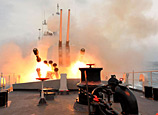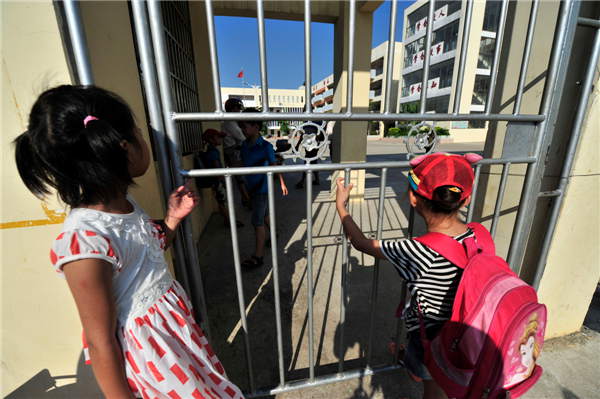
Some European telecom companies, including Ericsson AB and Nokia Siemens Networks, also said they opposed the EU's move, according to foreign media reports.
"We don't believe in this type of unilateral measure. Our policy is for open, free and unrestricted trade and global supply chains," said Ulf Pehrsson, head of government and industry relations at the Stockholm-based Ericsson.
Barry French, a spokesman for Nokia Siemens, a venture between Nokia Oyj and Siemens AG, also said it opposed any efforts to restrict free trade and erect trade barriers.
"We have made that position clear to the commission both verbally and in writing," he said.
China exports network equipment, base stations and connections used by telecom providers to transmit voice and data messages worth more than 1 billion euros ($1.3 billion) a year to the European Union, giving it almost a quarter of the market, Reuters reported. The EU itself is China's largest export market.
Shen said that the commerce ministry is scheduled to announce the preliminary rulings of trade investigations into solar-grade polysilicon, an ingredient of solar panels, from the EU, the United States and South Korea in June.
Following the US' decision to impose punitive tariffs of up to 249.96 percent on Chinese photovoltaic solar products in November last year, the EU started its own investigation into alleged government subsidies for Chinese solar panel manufacturers.
The European Commission is reported to be planning punitive tariffs ranging from 37.3 percent to 67.9 percent on solar panels from China.
"China attaches high importance to these reports. If they are true, the EU's move seriously violates multilateral consensus of avoiding protectionism and will take its toll on China-EU economic ties," Shen said.
As China's largest export market for PV solar panels, the EU's investigation and possible punitive tariffs will hurt China's solar industry deeply.
Gao Hongling, deputy secretary-general of the China Photovoltaic Industry Alliance, told China Daily the suggested tariffs were much higher than predicted.
The EU is due to issue a preliminary anti-dumping ruling in coming weeks and an anti-subsidy ruling in August.
China's trade with the EU declined 3.7 percent year-on-year in 2012 and 1.3 percent year-on-year in the first four months of this year, according to the General Administration of Customs.
"The economic ties are the most vibrant part of bilateral relations — but the damage from the EU's frequent trade investigations should not be underestimated," Shen said.
"China and the EU have solid foundations and a sound mechanism for economic cooperation."
Sang Baichuan, director of the Institute of International Business at the University of International Business and Economics in Beijing, added: "The bilateral trade volume is declining due to the sluggish economic recovery in the bloc.
"But the EU's frequent trade remedy investigations will surely bring about very severe damage.
"Not only related industries will be affected. China will take counter measures and the final result will be losses on both sides."



















![]()
